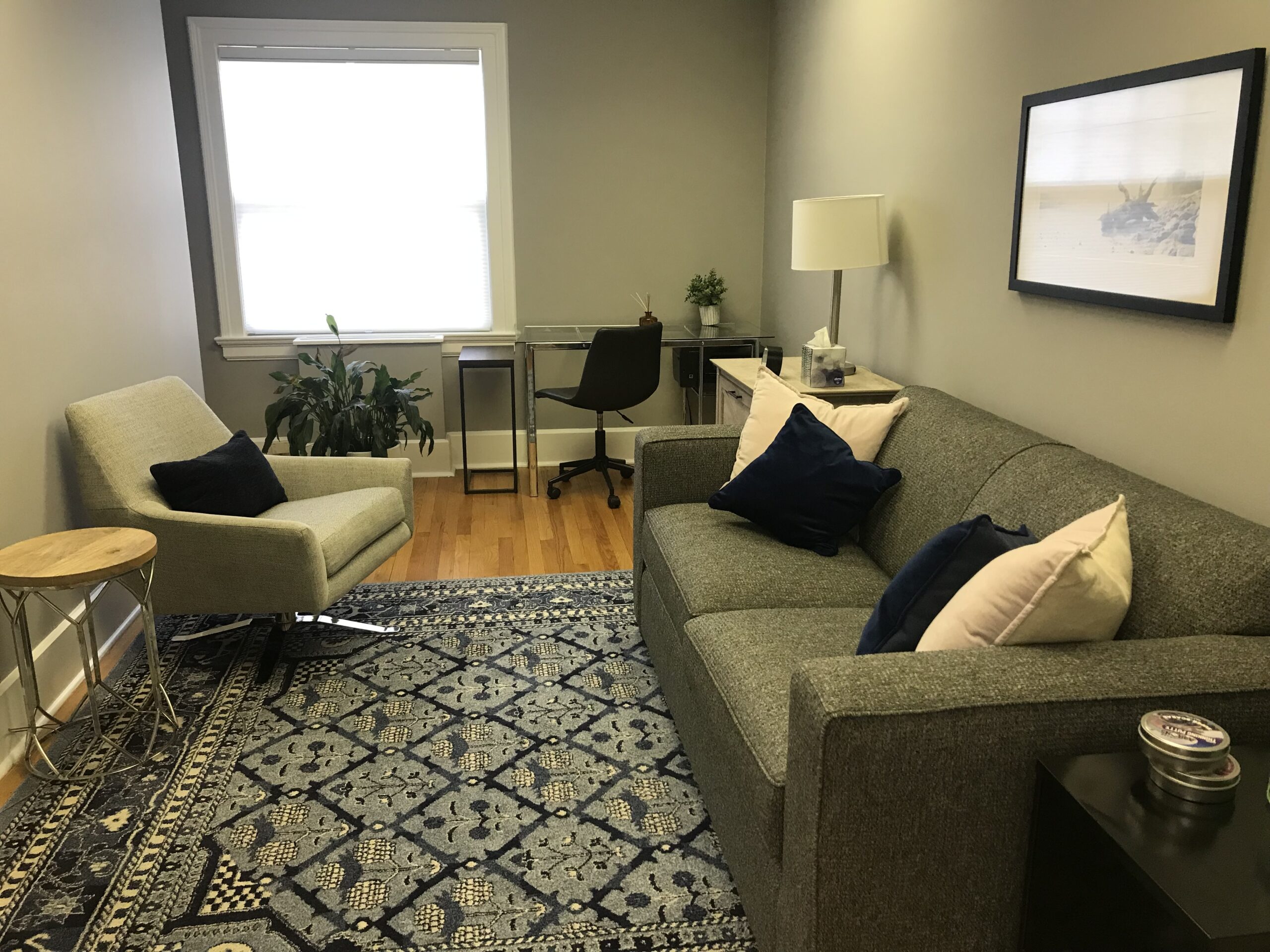Offering couples therapy intensives in Manhattan, NYC and Montclair, New Jersey
Our relationships matter
Our relationships with partners, parents, kids, friends, teachers, and caregivers really do help us become better versions of ourselves. Relationships help us to keep growing throughout our lives.
When these relationships are healthy, we are capable of so much.
When these relationships are strained, we can become quite limited in our ability to enjoy life and be productive.
Couples come to me for my experience and training, however, the couple is the expert on their relationship. I rely on couples to tell me the story of their relationship.
A narrative approach allows me to understand the deep roots of couple problems and address them in our work together. This approach is practical and it focuses on the present. Yet it also recognizes the ways our past may have contributed to our present difficulties.
Perhaps there were seeds of disconnection sewn early in your partnership. Or maybe you experienced an easy courtship yet found difficulty remaining connected during life transitions.
The BIG BIG Book and the State of Union Assessment will explore the specific areas a couple has been struggling. We will target our interventions to address these areas. We will also find, highlight and augment positive experiences and connections that you’ve nurtured over the years.
Strengths and positive experiences buffer against challenging times together.
Co-explorers of your relationship
I view the therapist-client relationship as that of “seasoned and hearty co-explorers”. This description guides my relationships with both clients and supervisees.
I picture us walking side by side and noticing things along the way. We pause and reflect when we come across patterns that make you feel trapped. Then, we make an effort to modify those patterns that are not beneficial for you. A couple can make major changes after absorbing only a brief bit of education.
I start each session by asking couples to focus on what went well since our last meeting. I welcome them to share appreciations and positive aspects of their connection. These couples are able to build on and hopefully maintain the positive changes, even amidst the hurt feelings and challenging days.
One of my supervisors taught me the 80/20 rule about relationships. We all have things about our partners or our relationships that we aren’t happy with or wish were different. We can choose to live in the 20%, where we criticize, are unhappy, and demand change, or live in the 80%.
This reminds us to acknowledge what is working well. It can buffer against feeling as if EVERYTHING needs re-working in the therapy. When we recognize what is going well, we can focus on fixing what is not going well in the relationship.
Sex and intimacy…normalizing the struggle
Many couples I help are having difficulty finding and maintaining sexual intimacy, especially while raising children.
Addressing sexual issues head-on is comforting to couples who feel disillusioned and isolated from one another. No one teaches us about sex or relationships, so it’s understandable that many people, including myself, have had difficulties. Even if couples are having little or no sex life, it’s normal for this to happen during different stages of marriage. No one should feel ashamed about it.
Sometimes, the romantic relationship takes a hit when kids come along! Sometimes it feels easier to focus on the kids and neglect a marriage. It takes practice to prioritize our couple relationships.
Every day, I work with couples who desire to be listened to and understood. Helping couples communicate and understand each other’s needs and desires is fulfilling work.
My sex therapy supervisor says that “sex is anything you wouldn’t do with your neighbor!”
This broad definition can help clients to understand that sex is not about genitals but instead is about connection. It helps them to focus on the many ways in which they may already be connecting with one another. This serves as a foundation from which they can begin exploring how they want to expand their forms of connection.
A passion for research
I have always found family relationships, friendships, romantic relationships, and sexuality fascinating. Growing up, I enjoyed observing couples and wondering how they acted in public versus in private. I noticed that relationships and sexuality are important to people, but no one teaches us how to have or keep them.
In graduate school I conducted research on the impact of sexual relationships on couples’ relationship satisfaction. My research showed that a good sexual connection can buffer the impact of poor communication on marital satisfaction.
I later completed my dissertation on “consensual unwanted sexual activity”. This was the first qualitative study into exploring the phenomenology of this commonly experienced yet poorly understood experience.
I also gained research experience in child development at the National Institutes of Health. I co-coordinated depression prevention research at the University of Pennsylvania under Dr. Martin Seligman.
I was privileged to be in Seligman’s first positive psychology seminar. Lessons from that class remind me to focus on the “signature strengths” of each individual (and couple).
Prior to opening my private practice, I worked in and eventually became the director of a federally funded relationship education program. I used the Gottman’s Loving Couples Loving Children program at Montefiore Medical Center in Bronx, NY.
I taught the class on relationship skills that I wished I had when I was younger!
Seeing these couples learn to connect emotionally with more skill and ease was truly life-changing for me.
I currently work with couples in my private practice. I also serve as the Co-Director of the Sex Therapy Training Program at the Institute of Contemporary Psychotherapy in NYC. I teach and supervise sex therapy.
An early sense of curiosity
Growing up, I was lucky to have a supportive family. They encouraged me to ask questions and allowed me to express my curiosity. I also witnessed many loving but conflicting relationships.
I also received some mixed and negative messages. My school taught sex education mainly by scaring us and emphasizing abstinence, preventing pregnancy, and avoiding sexually transmitted infections.
Schools didn’t teach us how to have healthy relationships or explore sexuality safely.
When navigating my own teenage relationship, I found my own therapist. They helped me understand what to expect in a romantic relationship and how to have healthy boundaries in sex and relationships.
I understand how it feels to have questions about relationships and sexuality and to seek help from a therapist.
Sex, relationships, and emotional intimacy remain a constant and steady source of my curiosity. As a sex therapist, I am comfortable asking my clients difficult and surprising questions that will help them to grow.
Lifelong learning (and teaching)
Another aspect of my work that delights me is the constant opportunity to learn, grow, and stretch.
I recently finished training in somatic experiencing. This training allows me to incorporate the body in therapy sessions. It also helps me assist couples who have experienced trauma. By helping them feel safer in their own bodies, people find they are able to improve their connection with one another.
I enjoy working with clients with ADHD and supporting their relationships. In every session I teach couples about healthy relationships, sexuality and emotional connection. I especially enjoy teaching communication and conflict resolution skills to couples.
My latest focus
My current obsession is perimenopause, menopause, and women’s health more generally. We pooryl understand and address the changes that occur in women’s bodies as they age. Recently, I learned that only 25% of obstetrician gynecologists have received training in menopause, which is truly astounding!
My friends and patients have had their health concerns dismissed by doctors who tell them these changes are “in their heads” or just “the way it is after menopause.”
Lots of women suffer silently with physical symptoms like trouble sleeping, vaginal atrophy, and sudden heat waves. Hormonal and other treatments can really help ease these symptoms.
I’m also WILD about pelvic floor physical therapy and think every woman should see one after giving birth. This is a health practice widely recommended in other countries because of its positive impact on maternal health.
People often dismiss women for their health concerns, which causes them to become inured to the suffering. Many come to see me for sex therapy to address issues they’ve internalized, blaming themselves for being “broken”. Medical interventions could have helped with these issues and reduced their suffering if they had been offered.
We should educate and treat women adequately so that they can regain sexual and relational health.
I’ve become my neighborhood “menopause expert”, women need more spaces to share the impact of aging on their relationships and sexuality.
On a personal note
I would describe myself as a super friendly, mostly happy extroverted explorer-type who loves change! Change is exciting, and adapting to change builds confidence and resilience. My capacity to adapt to change makes me a good partner and parent.
I chose the town I live in now with my own family because of the town I grew up in in the south. We found a home within walking distance of our town farmer’s market and go on weekends as a family to fill our bags with farm fresh veggies and fruits.
I had a very special great-grandma who I called “GG.” My whole family is very tall but she was small and short like me. I’ve been told that I take after my ‘GG’ because she was great at sitting with someone and really listening.
I like to think I bring her with me into my sessions with clients, listening without judgement and really giving them attention and care.
My offices
One of my offices is in midtown Manhattan with a view of a beautiful church out the window. The Manhattan office is 2 blocks from both Penn Station and the LIRR trains and sits in the heart of midtown quite close to the Empire State Building. I love to look up and see the lights of the Empire State Building when I leave the office in the evenings.
My other office is in Montclair, New Jersey and is on the first floor of a Victorian home. It is cozy, warm, and filled with light. It is also walkable from downtown Montclair which has many delicious restaurants, cafes, and a famous concert venue, the Wellmont Theatre. Montclair is a vibrant town famous for its delicious restaurants and is a pretty walkable city.


